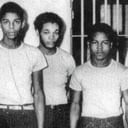New York Times Magazine
by ANTHONY LEWIS
Forty-one years ago, a poor, isolated prisoner in Florida, the least influential of Americans, wrote a letter to the Supreme Court — a letter in pencil, on lined prison paper — claiming that he had been wrongly denied the right to a lawyer when he was convicted. The Supreme Court agreed to hear his case and found that the Constitution required counsel to be provided in all serious criminal cases for defendants too poor to hire their own. ClarenceEarl Gideon would have a new trial, this time with a lawyer.
The new jury found him not guilty: a happy ending not only for him but also for the principle that a lawyer’s help is crucial for criminal defendants.
After the Supreme Court decision, I recognized that it would be, as I wrote then, ”an enormous social task to bring to life the dream of Gideon v. Wainwright — the dream of a vast, diverse country in which every man charged with crime will be capably defended … sure of the support needed to make an adequate defense.”
On this 40th anniversary, how have we done? I take my answer from a recent paper by Bruce Jacob, the lawyer who represented the State of Florida in the Supreme Court, arguing against Gideon’s claim of a right to counsel. ”I hoped that legislatures would meet the challenge,” Jacob wrote. ”That was at a time in my life when I still believed that legislators want to do the right thing.… The record of the courts in fulfilling the hopes represented by Gideon is a dismal one.”
I was covering the Supreme Court when it decided Gideon v. Wainright, and the case has always had special meaning for me. It is painful to hear Bruce Jacob express disappointment at today’s courtroom inadequacies. Even more alarming is the assertion by the Bush administration that in a whole new class of cases it can deny the right to counsel altogether. Those are the cases of American citizens designated by Bush as ”enemy combatants.”
One of them is Jose Padilla, born in Brooklyn in 1970 and arrested by federal agents last May at O’Hare International Airport in Chicago. The administration claims that it can hold Padilla in solitary confinement indefinitely, without trial and without access to a lawyer.
Bruce Jacob’s judgment rests on endless failures to bring the promise of Gideon to life. Many states and localities offer not even the minimal level of financial support needed for an adequate defense.
And far too often the lawyers provided for indigent defendants have not met the barest standards of competence. Take the case of the sleeping lawyer. Calvin Burdine was on trial for his life in Texas when his appointed counsel, Joe Frank Cannon, fell asleep several times during the trial. The Texas Court of Criminal Appeals held that that was no reason to set aside Burdine’s conviction. The United States Court of Appeals, considering the issue on habeas corpus, disagreed, but only by a vote of 9 to 5. That is, five of those distinguished federal judges thought a lawyer who fell asleep during a capital trial did not do enough harm to matter.
The truth of the proposition that a lawyer is essential was vividly demonstrated to me by something that happened in Gideon’s second trial. Gideon had been charged with breaking and entering the Bay Harbor Poolroom in Panama City, Fla., in the early morning hours and taking some coins and wine. At his first trial, a taxi driver, Preston Bray, testified that Gideon had telephoned him and that he had gone to the poolroom and picked him up. When he got into the cab, Bray said, Gideon told him not to tell anyone about it. That was damaging testimony. And Gideon, without a lawyer, let it stand without any cross-examination.
In the second trial, Gideon had a lawyer: Fred Turner. After Preston Bray testified again that Gideon had told him not to say anything about picking him up that morning, Turner asked whether Gideon had ever said that to him before. The taxi driver answered, yes, Gideon said that every time he called a cab. ”Why?” ”I understand it was his wife — he had trouble with his wife.”
Nothing could demonstrate more clearly the value of having a lawyer. But we know now that it has to be a competent lawyer. Fred Turner was competent, and then some. He not only destroyed the taxi driver’s evidence against Gideon. He destroyed the chief prosecution witness, one Henry Cook, who said he had seen Gideon near the time of the break-in. Turner suggested to the jury that it was really Cook himself who had committed the crime. He was in a good position to speak about Cook because he had represented Cook in two other cases.
Lawyers themselves bear some of the responsibility for the failures since the Gideon decision. Of the 13 people on death row in Illinois released between 1987 and 2000 after they were found innocent, four had been represented by lawyers who were later disbarred or suspended from practice. But so do the authorities who pick indifferent, sleepy, incompetent lawyers to defend men and women on matters as serious as life and death. Calvin Burdine’s lawyer, Joe Frank Cannon, was appointed by judges in Houston to other cases after he slept through Burdine’s trial. In Texas and other places, some appointments of counsel are regarded as sinecures to be given to friends and supporters.
Then there is the question of resources. Even a competent lawyer may not be able to mount an adequate defense against the state, with all its resources, if he has next to nothing for investigation and effectively works for starvation wages.
Bobby Houston spent 19 months in jail in Indianapolis without ever being tried, four of them after the charge against him, child molesting, had been dismissed. The public defender handling his case never told him, or told the prison authorities, about the dismissal.
We can surely say that Houston’s lawyer lacked due diligence. But politics and money were also involved. At the time of the case, public defenders in Marion County, Ind. — working part time or more than part time — were paid $20,800 a year, plus $60 a month for all office expenses. They were so grossly underpaid and overworked that many could not even accept collect calls.
Why does the dream of the Gideon decision — the dream of a country in which every person charged with crime will be capably defended — remain just that, a dream? Why do judges countenance mockeries of legal representation? Why do we, the citizens, tolerate such unfairness? These are profound questions, and I can do no more than speculate on possible explanations.
One answer is plain. Criminal defendants and prisoners have little or no political power. Legislators see no votes in assigning competent lawyers for poor defendants or giving lawyers the resources to do their job properly. The Clarence Earl Gideons of this world are constituents who can safely be ignored. Many are barred from voting, and the rest seldom bother.
There is more to it than defendants’ and prisoners’ lack of political power. This country differs from all other Western countries in its attitude toward crime and criminals. We are tough on crime, as the advocates of harsh measures put it. Critics might use a stronger term, like ”brutal.” American prisons tend to be more unpleasant than they are elsewhere; sentences, much longer.
And of course we impose the death penalty, which has been abandoned everywhere else in the trans-Atlantic world as a savage relic.
Why the United States takes so different a view of how to treat criminals is a question too deep for exploration here. But there is no doubt that the harsh view exists, exacerbated by politicians, starting with Richard Nixon and his ”war on crime.”
Manifestations of this harshness are widespread. The United States Court of Appeals for the Eighth Circuit recently approved the involuntary administration of antipsychotic drugs to a death-row inmate so he could be made sane enough to be executed. Then there was the prosecutor who argued that an execution should proceed even if the prisoner were to offer last-minute DNA evidence of his innocence.
DNA is at the center of an extraordinary recent development that sheds some light on attitudes toward criminal justice. The discovery of incompetence — or worse — at the Houston Police crime laboratory in recent months may affect hundreds of prosecutions in Harris County, where Houston is located, including many capital cases. More defendants from Harris County have been executed than from any other county in the United States. Now it turns out that the work of the laboratory is suspect.
What about the defense lawyers? Many simply did not have the resources to check the authenticity of the evidence that sent their clients to jail — or to death.
Among them were the lawyers for Josiah Sutton, convicted of rape four years ago and prosecuted in part on the basis of a DNA report from the Houston lab. After a Houston television station raised questions about the laboratory last fall, the sample used to help convict Sutton was retested by an independent laboratory in Houston, which found that it did not match Sutton’s DNA.
The case of Josiah Sutton and the Houston crime lab is one more proof of what Justice Black told us in Gideon: when the state brings its weight down on an individual, he or she cannot get justice without the help — the effective help — of a lawyer. That is a fundamental truth, an obvious truth, as Black said. But on the anniversary of the decision in Gideon v. Wainwright, that truth is being challenged in a way that I did not believe was possible in our country.
In two cases now before the courts, Attorney General John Ashcroft is asserting that President Bush has the power to detain any American citizen indefinitely, in solitary confinement, without access to a lawyer, if he, the president, designates the detainee an ”enemy combatant.” The detainee cannot effectively challenge that designation. A court may hold a habeas corpus proceeding, but the government need produce only its own assertions of evidence, not subject to cross-examination. ”Some evidence” will suffice — that is, any evidence, however unchecked and second-hand. That is the claim being made by the law officers of the United States.
I would not have believed that an attorney general would argue that an American could be held indefinitely without being able to speak to a lawyer. I seriously doubt that any attorney general in the years since Gideon, except the present occupant of the office, would have made that claim.
One of the pending cases concerns Jose Padilla, who became a gang member, was arrested half a dozen times and served several jail sentences. He became a Muslim. After traveling, in Pakistan among other places, Padilla flew into O’Hare Airport last May 8 and was arrested by federal agents. He was first detained as a material witness before a New York federal grand jury investigating the Sept. 11 terrorist attack on the World Trade Center. A judge appointed a lawyer for him and set a hearing for June 11. But on June 10 Ashcroft, who happened to be in Moscow, made a televised statement about Padilla. ”We have captured a known terrorist,” Ashcroft said. His arrest ”disrupted an unfolding terrorist plot to attack the United States by exploding a radioactive ‘dirty bomb.”’ There has been no way for Padilla, or his lawyer, to challenge that statement, or for the news media to test its truth. It was a conviction by government announcement.
Padilla is confined in a Navy brig in South Carolina. The lawyer originally appointed to represent him in the material witness proceeding, Donna R. Newman, has been trying to see him — without success. A federal judge, Michael Mukasey, decided that she should have a chance to talk with him for the limited purpose of examining the evidence produced by the government in support of his designation as an ”enemy combatant.” But that decision was challenged anew by government lawyers.
They offered an affidavit by the director of the Defense Intelligence Agency, Vice Adm. Lowell E. Jacoby. He said successful interrogation of a prisoner depends largely on ”creating an atmosphere of dependency and trust between the subject and interrogator. Developing the kind of relationship … necessary for effective interrogations … can take a significant amount of time. There are numerous examples of situations where interrogators have been unable to obtain valuable intelligence from a subject until months, or even years, after the interrogation process began.” Admiral Jacoby said any access to counsel, however brief, ”can undo months of work and may permanently shut down the interrogation process.”
There is a certain paradox in Admiral Jacoby’s affidavit. The very fact that extended interrogation in the absence of counsel may break a subject’s will is one reason that the right to counsel is guaranteed in the criminal law. It is the basis of the Miranda rule.
The government argues, and in the other ”enemy combatant” case the United States Court of Appeals for the Fourth Circuit agreed, that the Sixth Amendment’s guarantee of the right to counsel ”in all criminal prosecutions” does not apply because Padilla is not being prosecuted. In other words, the government can hold an American in prison for life without letting him see a lawyer if it takes care not to charge him with a crime and try him. James Madison and the others who added the Sixth Amendment and the rest of the Bill of Rights to the Constitution in 1791 would surely have regarded that argument as sophistry.
Bruce Jacob has served on both the defense and the prosecution side of criminal justice. Forty years after Gideon v. Wainwright was decided, he takes a broad view of the constitutional right to counsel. It should include civil as well as criminal proceedings, he says in his paper: ”The due process and equal protection clauses do not differentiate between criminal and civil cases.” Paraphrasing Black’s opinion, Jacob concludes: ”Certainly any person haled into court or brought before any tribunal, whether criminal, civil or administrative… should, if indigent, be afforded counsel at public expense.” With an eye on the enemy combatant cases, I would amend that statement to include any person deprived of his liberty by the state.
Clarence Earl Gideon was not a clear thinker, a man of the world or, least of all, an easy person to deal with. He was a petty criminal, a habitual one, worn out beyond his years by a difficult life. But he knew what he wanted. He turned down the first two lawyers offered him, when it came time for his second trial. He wanted Fred Turner, and that was a wise choice.
Fred Turner told Bruce Jacob that Gideon came to him with ”a valise full of motions.” Among other things, he wanted to move for a change of venue, to Tallahassee. Turner pointed out that he knew people in Panama City — in fact, he knew most of the jurors — but none in Tallahassee. Gideon agreed to drop the idea of a change of venue. Then Turner told him, ”I’ll only represent you if you will stop trying to be the lawyer and let me handle the case.” Gideon agreed.
Clarence Gideon, who died in 1972, would be disappointed today at the imperfect realization of his dream. He would regret especially, I think, the failure of the Supreme Court to hold that the Constitution requires a meaningfully competent lawyer for the poor defendant — the court’s countenancing, even in capital cases, of lawyers who scarcely go through the motions while their clients are convicted.
On the other hand, the Supreme Court has held fast to the principle that the right to consult a lawyer is, as Justice Black said, ”fundamental.” It is a far more conservative court than the one that decided the Gideon case, with William Rehnquist as chief justice instead of Earl Warren. It has overruled or narrowed many precedents. But it has repeatedly reaffirmed its holding in Gideon v. Wainwright.
That is what makes the Bush administration’s claim in the ”enemy combatant” cases so extraordinary. Of course, Jose Padilla and the other man being held, Yasser Esam Hamdi, are not in precisely Gideon’s position. They are not being prosecuted; they are being held indefinitely, without charges, in solitary confinement. They are not looking for counsel; they both already have lawyers, highly competent ones appointed by federal judges. But they are not allowed to talk to them. Those differences from Gideon’s situation seem to make their need to consult the lawyers they have, if anything, more compelling.
The constitutional argument made by Ashcroft and his aides also seems imperfect. Perhaps the Sixth Amendment guarantee of counsel ”in all criminal prosecutions” can be reasoned away as inapplicable to indefinite detention without charge, though I think the framers would have been astonished at the invention of a severe penalty for a suspect with fewer rights than he would have as a criminal defendant.
But the Constitution also includes the Fifth Amendment. It provides that ”no person shall … be deprived of life, liberty or property, without due process of law.” Jose Padilla has been deprived of his liberty — forever, for all he knows. Has he had due process of law?
The Bush administration’s answer to that question is essentially this: in a war against terrorism, any process that the president says is essential to the war is due process. Government lawyers argue that in wartime, courts must defer to the president’s judgment.
The denial of counsel to Jose Padilla, then, is an aspect of something larger. About the time the Gideon case was decided, we began to hear about the imperial presidency. The terrorist attacks of Sept. 11, 2001, and now the war on Iraq have renewed that concept in even more extreme form. Bush has little trouble with a supine Congress. He wants the Constitution, too, as our judges enforce it, to yield to the supremacy of the president.
— — — — — — —
Anthony Lewis is a former New York Times columnist and the author of ”Gideon’s Trumpet.”



